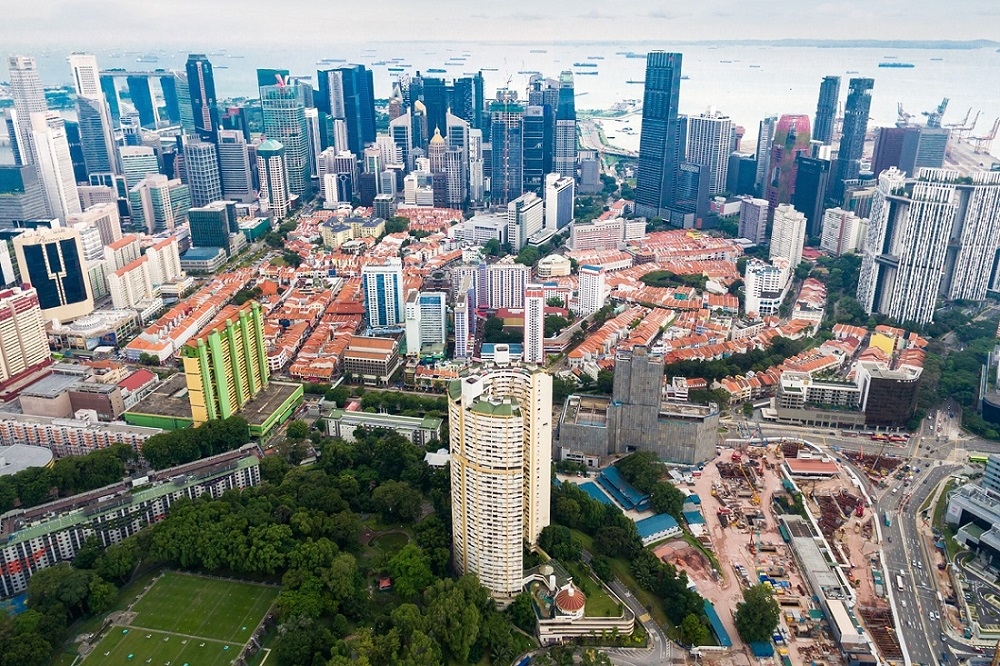
CapitaLand poised to deflect new property measures' effects
Only the launch of Pearl Bank Apartments risks a delay.
Following the re-introduction of property cooling measures in Singapore, CapitaLand was one of the stocks that opened negative by -3.14% at $3.10. However, the impact on the company is limited, argued DBS Equity Research analyst Derek Tan.
He said that the group has substantially sold off existing inventories and the Singapore residential exposure forms only 5% of RNAV. It also has growing recurring revenues from its retail mall portfolio and Ascott.
“Whilst trading properties (residential development and strata offices) account for 24% of assets, we see continued strength from CapitaMall Asia and commercial integrated developments, including Ascott Group (its successful serviced residence brand) which form a significant 76% of total assets and are expected to contribute to growing recurring income for the group,” he said.
CapitaLand’s retail malls are seeing good tenant sales growth and operational outlook remains stable, the analyst added. “The group’s retail malls in China, Singapore and Malaysia are seeing improving operating metrics - tenant sales in Singapore and China have increased by 1.5% and 19.8% respectively, whilst portfolio tenant sales and traffic growth were generally positive across the portfolio.”
CapitaMall Asia is expected to drive earnings mainly on the back of the stabilisation of more than 1 million sqm of retail space that was completed back in 2017, Tan noted.
The company can also rely on its asset reconstitution strategy. “The proposed sale of 20 malls, of which mostly are in Tier 2/3 cities at 7% premium above valuation, crystallises value for investors and is a testament of the group’s proactive asset management capabilities,” Tan said.
“Income lost will be more than compensated by the completion of more than 1 million sqm of retail GFA in 2017, a majority coming from China (Suzhou Center Mall) and three Raffles City projects (Raffles City Changning, Raffles City Hangzhou and Raffles City Shenzhen) which have seen strong pre-leasing interest with committed rates of more than 90%,” he added.
Ascott is also on its way to achieving its 80,000-unit target by 2020 and now aims to double it by 2023. “With scale, we believe that Ascott can achieve better operating efficiency and thus margins and returns,” Tan commented.
“Ascott’s investment in China’s largest and fastest-growing online apartment sharing platform, Tujia has yet to bear fruit meaningfully but we continue to believe in its longer-term synergies and ability to leverage on Tujia’s platform to reach out to a wider addressable market in the medium term,” he added.
For its residential business, Tan only sees an issue with the en bloc of Pearl Bank Apartments, which will be launched in 2019 but could be delayed given the property curbs.
Meanwhile, CapitaLand continues to see strong momentum in its residential division in China. “In China, the group has locked in around $3b in sales offering strong earnings visibility. In 2018, CapitaLand will be launching a further 6,000 units for sale,” Tan said.
























 Advertise
Advertise









